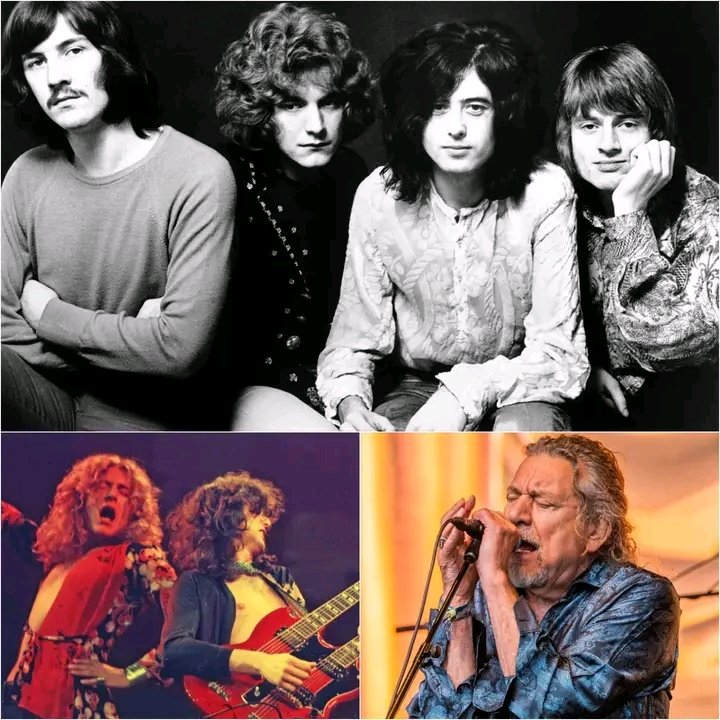“I Don’t Need the Money”: The Untold Story of Why Robert Plant Turned His Back on a Led Zeppelin Reunion and Chose His Own Path Over Global Glory
In the world of rock ‘n’ roll, few stories have captivated fans quite like the long-speculated reunion of Led Zeppelin. Following their explosive 2007 one-night-only performance at London’s O2 Arena—a show that reignited global demand for the band—rumors swirled endlessly. Promoters waved blank checks. Fans begged. The surviving members of the legendary group, Jimmy Page, John Paul Jones, and Jason Bonham (son of the late John Bonham), were reportedly ready to take Zeppelin back on the road. But one piece was missing. And that piece—Robert Plant—quietly, but firmly, said “No.”
Behind Plant’s refusal lies a story rarely told. This wasn’t about bitterness or ego. It wasn’t about vocal range or clinging to the past. It was about something deeper: a man who had already mourned the loss of his band once, and wasn’t willing to resurrect it as a commercial act for nostalgia’s sake. “I don’t need the money,” Plant famously said, shutting down multimillion-dollar offers with a single sentence. For him, the music had always been sacred—and without that spiritual fire, it wasn’t worth relighting the flame.
In the years following Zeppelin’s breakup in 1980, after Bonham’s tragic death, Plant had worked tirelessly to carve out a solo career that was entirely his own. He experimented. He took risks. He collaborated with new generations of musicians, most notably with Alison Krauss on the Grammy-winning Raising Sand. Where others saw retirement tours and rock museum status, Plant saw open roads and sonic adventure. He didn’t want to be trapped in the amber of 1970s glory.
The behind-the-scenes tensions around the proposed reunion became clear in the late 2000s, when Page and Jones rehearsed extensively with Bonham and even auditioned other vocalists while Plant was on tour. Still, Plant remained resolute. He believed that Led Zeppelin, in its true form, could not exist without all four original members—and any attempt to recreate it felt inauthentic. “It’s not just about playing the songs,” he later reflected. “It’s about the communion, the chemistry—and you can’t fake that.”
Fans struggled to understand his decision. Some saw it as selfish. Others, with time, came to admire his conviction. In an industry often driven by profit and legacy branding, Robert Plant’s choice was quietly radical. He wasn’t rejecting his past—he was honoring it by refusing to dilute it. That refusal cost him untold millions, but gave him something far greater: the freedom to grow, to evolve, and to live as an artist, not an icon frozen in time.
In the end, Robert Plant’s quiet rebellion against the machine of nostalgia tours revealed his truest legacy—not just as Led Zeppelin’s voice, but as a musician brave enough to walk away from the noise. His path wasn’t lined with gold records or thunderous encores. It was lined with integrity. And in choosing it, he reminded the world that sometimes, the most powerful thing a rock god can do… is say no.
